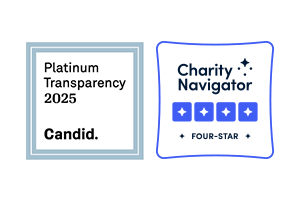
New Orleans – Three environmental groups today filed federal lawsuits against two petroleum coke processing plants in Louisiana for discharging toxic water pollution including lead, mercury, vanadium, and polycyclic aromatic hydrocarbons (PAH’s) and for failing to tell state regulators about the contaminants in their stormwater.
The Environmental Integrity Project, Healthy Gulf, and Micah 6:8 Mission filed lawsuits against petroleum coke processing plants, which take a byproduct of oil refining and superheat it to produce a black, carbon-dense coal-like substance – “petcoke” – that is used in aluminum manufacturing and other industries.
The plants named in the lawsuits, which were filed in the in U.S. District Court for the Western District of Louisiana, are the Rain CII Lake Charles Calcining Plant and the Alcoa Reynolds Metals Lake Charles Carbon Plant, both of which dump into the Calcasieu River.
The lawsuits say that Alcoa and Rain CII have been illegally discharging lead, mercury, nickel, vanadium, and polycyclic aromatic hydrocarbons (PAHs) into the waterways and failing to tell the Louisiana Department of Environmental Quality they were discharging these pollutants. However, separately, the companies admitted to the U.S. Environmental Protection Agency that they were discharging these pollutants in their reports to the agency’s Toxic Release Inventory (TRI).
“These petcoke plants need to take action to reduce the pollution they are dumping into Louisiana’s waters, which is a threat not only to aquatic life but also to human health,” said Meg Parish, Senior Attorney with the Environmental Integrity Project (EIP). “The petcoke industry has been getting away with weak and outdated pollution control systems for too long. It’s time these plants act as responsible neighbors.”
Andrew Whitehurst, Water Program Director at Healthy Gulf, said: “For too long, these petcoke plants have poisoned Louisiana’s waters and misled regulators to avoid accountability. Communities and ecosystems along the Calcasieu River deserve better. This lawsuit is a necessary step to stop the deception, enforce the law, and protect our waters from toxic pollution.”
Overall, there are 13 petcoke processing plants across the U.S., seven in Louisiana and two in Texas. The plants were built between 1935 and 1983, lack modern air and water pollution controls, and are among the leading sources of air and water pollution in their regions. Many are located in communities that are disproportionately low-income or people of color.
Petcoke processing plants have slipped through the Clean Water Act’s protections, as documented in EIP’s report in July, “The Long Shadow of Oil Refinery Waste: Petroleum Coke’s Polluting Role in U.S. Industry.” EPA never established national water pollution limits (called “effluent limitation guidelines”) for the industry and states have not filled in the gap. The result is extraordinarily weak water pollution permits that do not limit toxic pollution from the plants nor protect waters like the Calcasieu River or the people that use them.
The Environmental Integrity Project and allies filed a petition with EPA over those outdated guidelines on October 31 but EPA has not yet taken action on the issue.
For a copy of the lawsuits, click here and here.
The Environmental Integrity Project is America’s environmental watchdog. We are a nonprofit organization dedicated to protecting public health and our natural world by holding polluters and government agencies accountable under the law. We advocate for tough but fair environmental standards and empower communities fighting for clean air and clean water.
Media contact: Tom Pelton, Environmental Integrity Project (443) 510-2574 or tpelton@environmentalintegrity.org


